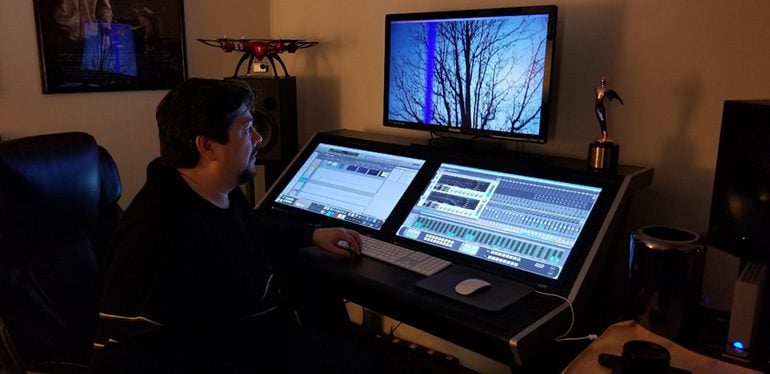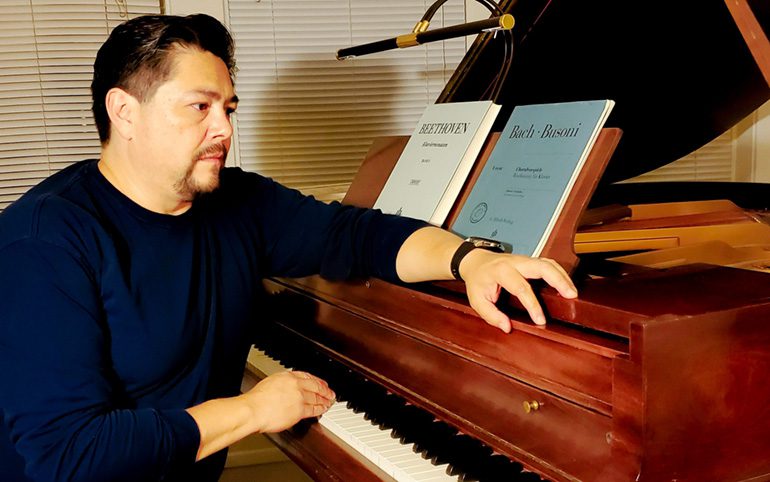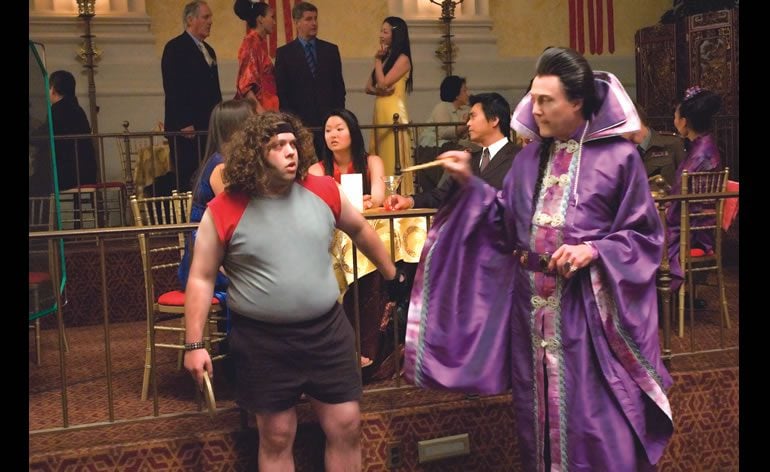Overcome the Challenges of Working with Temp Scores
“To Temp or Not to Temp.”
By Oscar Jasso
Temp scores (as in temporary music) have been used more and more in recent decades, thanks to the amazing evolution of technology that allows music and film editors to borrow music from sources, such as songs or other films, and insert it into their edit reels. Often, it works very well. This helps the editor and director get a view of their scenes with music, giving them an idea of how it would all work together. Unfortunately, this does not always provide us with a good, original product. In fact, some music editors have referred to temp music as chains to the composer’s creativity. But most modern film composers have learned to work with temp music, sometimes even seeing it as something positive. Personally, I do not have a preference.
Spotting sessions are always fun and interesting – almost as exciting as a blind date, but with a film, instead of a person. However, sometimes I do wonder if the director and I are speaking the same language, especially when he or she asks me to make certain cues sound like “air.” Now, I can get technical about this and suggest flautando articulations on strings or effects on flutes, but that is probably not what they mean.
A few years ago, I was hired to score a film by a writer/director with whom I had never worked before. This was a particularly unique experience for me. The first time we spotted a film together, she offered insight into the scenes and the characters – what they were thinking, their reactions, etc. But she did not offer any guidance on the music, nor did the film use temp tracks. I asked questions, trying to understand what she was looking for, but she did not tell me much. She just said, “I trust you will surprise me.” And that was all I had to go on.
I went ahead and started my composition process. It seemed that she did have an idea of what she wanted in mind, and she asked me to revise a cue here and there. Overall, it was a fun challenge. We have worked together on multiple films since, always with the same approach – no temp tracks and minimal guidance.
But it can be helpful to understand what the director is looking for from the beginning. Temp tracks can serve this purpose well, and some composers find them to be quite useful. However, I’ve come across many film composers that dislike receiving edits with temp tracks, feeling this limits their creativity and leads to a more generic product. (Have you ever wondered why so many film trailers sound the same?)
Early in my career, I was hired to score a film by some wonderful people from New York. The editor used music as temp track from a film called, “Lust, Caution,” scored by Alexandre Desplat. I was immediately blown away when I heard how beautifully this cue worked with the music of a composer whom I admire to this day. I knew that it would be difficult but important to disengage the filmmakers from that track.
However, rather than copying the style of the temp track, I was determined to write in my own voice. I labored over the music for that cue, pouring my soul into it, and I was proud enough of the outcome that I almost went out to celebrate, if it weren’t for the fact that there were still more cues to prepare. I sent it to the director and producer and awaited their response. In my head, I was sure the music worked perfectly with the scene.
The very next morning, I got a call from the director, and was disappointed to hear that this specific cue was rejected. He asked me to try again. I understand the work that I am hired to do. I do not allow my ego to interfere at all because, after all, the director and producers are the boss. I was hired to deliver material that can help tell or support a story which is not my story.
I was thankful for their patience (and for not being fired) and immediately started another sketch of another version. Finished and delivered. Was not accepted. I did a third, a fourth and so on. All the other cues were approved except this one. I was confronted with an insane challenge. By the time they rejected the seventh version, I was feeling with certainty that I would be fired if it were not for the fact that the rest of the music was done. Luckily, the themes that I wrote worked well for them but, I could not get this one major cue approved.
Late one night, around midnight, I was finishing version eight, when I got a text message from the director, saying, “Stop what you are doing, and call me.” I dialed, and he answered after the first ring, yelling, “We love the first version! Just love it!”
I was so happy, and a bit upset, to be honest. The next morning, he called me again to discuss some minor changes I still needed to make. I could not let him end the call without asking what changed his mind. What made them decide on this version, all the sudden?
The answer was what I feared. They were so influenced by the temp track and did not realize it. Fortunately, the editor, who is the hero of this story, began to make different edits for the past week using my music as temp tracks for the director and producer. After they listened to that cue a few more times, they were sold on my score. If it weren’t for this editor, I’d probably be working on that cue to this day.
So, temp tracks can clearly be a double-edged sword. Communication between a composer and a director can be a challenge with or without temp tracks, and it’s a hot topic often discussed among film composers. Don’t get me wrong, most of us that work in this industry love the work and respect the creative minds that challenge us to carry these stories with harmonies and melodies, or just creepy and disturbing sounds. But even in school, I had a teacher that talked to us for an entire class about the challenges we will face communicating with directors.
Most importantly, I value the relationships of the people that I work with. In many cases, we’ve become great friends. This is the best part for me.
I cannot say if temp scores are good or bad. The truth is that they can prevent something great from happening between the work of a composer and a director. But temp music can sometimes open minds to certain paths that can still be positive or negative but, that is for the director to decide.

www.oscarjasso.com
www.imdb.me/oscarjasso






